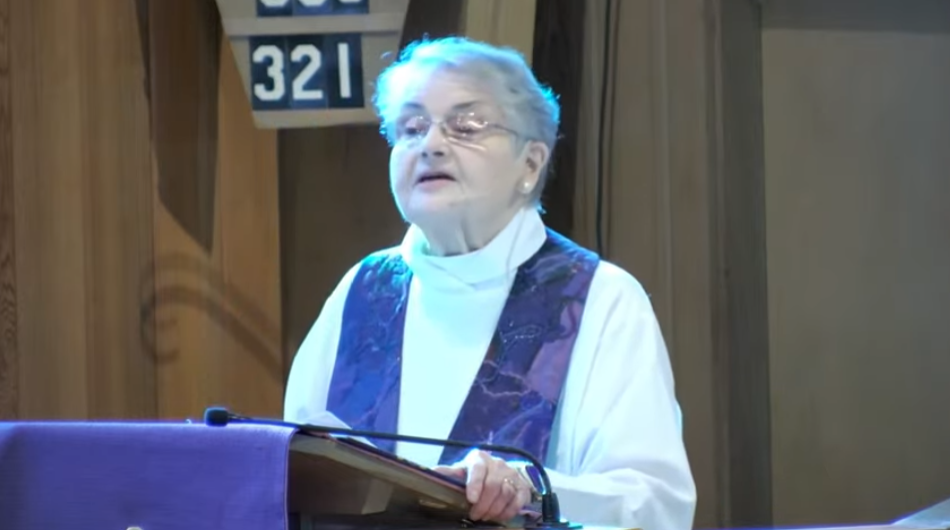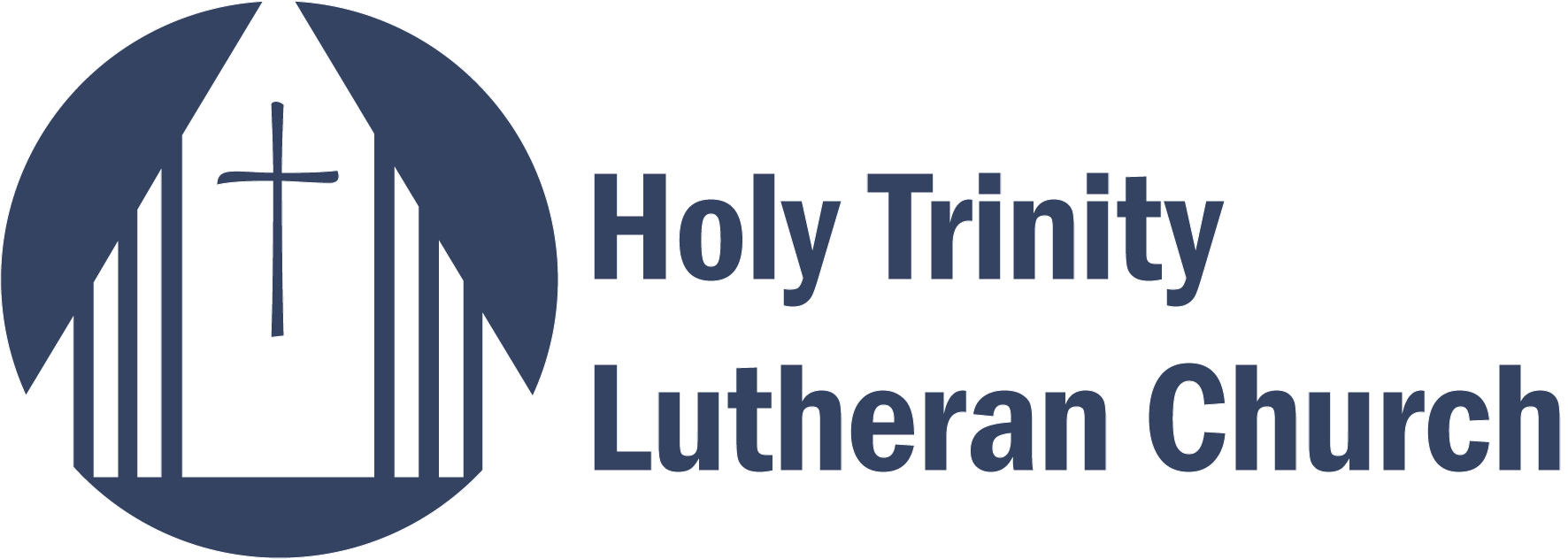We are God’s voice

“Remember that you are dust, and to dust you shall return.”
If you were here this past Wednesday, you heard these words. On that day, the most penitential day of the Christian year, a cross of ash is traced on our foreheads – men, women, and children. We left that service with no doubt of who we are – that we are mortal. We are the creatures. We are not the creator.
Thus we have turned a corner into a new season of the church year – today is the First Sunday in Lent. As Deacon Susan has frequently reminded us, the season of Epiphany has been an especially long one this year – eight Sundays, in fact, owing to the fact that Easter is late this spring, not until April 20. The Epiphany season is one where Jesus, the one born at Christmas, is revealed – made known to us. We began the Epiphany season with Jesus’ baptism in which God proclaims, “‘You are my Son, the Beloved; with you I am well pleased.’” (Luke 3:22) Last week, the last Sunday in Epiphany, Jesus was transfigured. Once again, God announces, “‘This is my Son, my Chosen; listen to him!’” (Luke 9:35) One Epiphany Sunday, Jesus does the extraordinary – turning water into wine at a wedding. On another Sunday, Jesus tells the folks in Nazareth, “‘The Spirit of the Lord is upon me” to bring good news to the poor, release to the captives, sight to the blind, and freedom for the oppressed. In yet another Epiphany text, Jesus preaches God’s blessing for the poor, the hungry, those who weep, and those who are reviled.
God says, “This is my Son.” Jesus says, this is who I am.
So if we now have some understanding of Jesus, in Lent we turn to another task. The ashes are a vivid statement of our mortality. We need these forty days to confess that we human beings are filled with the pride, arrogance, and over-confidence that encourages us to mistake ourselves for God. These forty days are a journey, a pilgrimage of repentance, a time to turn around, to change direction.
To aid in this task, we turn to the so-called Lenten discipline: fasting, prayer, self-examination, repentance, and the giving of alms – all works of love. In the ancient church, Lent was the traditional time when converts prepared to be baptized, and thus we reflect on our own baptisms. We remember, we are the saved; we cannot save ourselves. We are not rivals to God; we are servants of God.
The task of Lent, in other words, is to remember “whose we are” – God’s people, followers of Jesus, empowered by God’s own Spirit. In this season, we hold up these words, which we prayed a few minutes ago in the prayer of the day: “O Lord God, you led your people through the wilderness and brought them to the promised land. Guide us now, so that, following your Son, we may walk safely through the wilderness of this world toward the life you alone can give . . . . Amen.”
The biblical texts this morning reinforce the task before us. The Israelites escaped from slavery in Egypt, led by God in a pillar of cloud and fire. But then they had wandered – for 40 years they wandered in the wilderness. They were hungry and thirsty and beset by trials. Along the way they worshipped a golden calf; they were bitten by snakes and many died; their faith had deserted them over and over again. They had finally come to the land of Moab – overlooking the Jordan River. They could finally see beyond the river to “the land of milk and honey” that God had promised. As they are about to enter the land promised to their wandering ancestors, Moses gives them instruction.
In his speech, Moses reminds them: You are God’s people. Your ancestors were “wandering Arameans.” You are one with the aliens, the migrants, the landless. God gave you this land – a gift of love and grace.
It is such a temptation to forget. To forget that it is God who creates all people, all in God’s own image, so the book of Genesis tells us. To forget that God is the source of all blessings; that we are simply the caretakers. To forget that God calls us to love and to give. To forget that God’s voice is a voice for fairness and justice – and that we are called to speak God’s word in our world right now.
We are God’s voice to speak for our brothers and sisters, the “wandering Arameans” of today. We are God’s voice for children starving in Gaza and Sudan. We are God’s voice for families living in shelled buildings in Ukraine. We are God’s voice for those whose homes have been destroyed by fire or tornado. We are God’s voice for neighbors living under a bridge; those with no health insurance; people for whom medical care is limited because of prejudice. We are God’s voice for the people whose jobs have been cut and then reinstated, and they don’t have a clue what tomorrow will bring. We are God’s voice to speak on behalf of all whose lives have been turned upside down by a chain saw and who are heavy with anxiety. We are God’s voice for compassion, charity, humility, respect, kindness, and the mutual good of all.
So in this introspective season of Lent, over the next forty days, I invite you to prayer. I invite you to your Bible. I invite you to consider what it means to be, not God, but a child of God – and what God’s kind of love demands of us in this time and place. I invite you to care for others. I invite you to acknowledge the part we all play in demonizing others and drawing lines and building fences. I invite you to talk with each other to check if your assumptions truly reflect Jesus. I invite you to that old-fashioned directive to “give alms.” Open your checkbook to Lutheran Immigration and Refugee Service, now known as Global Refuge, whose government funding for refugee resettlement has been called a money-laundering operation. I invite you to donate to ELCA World Hunger or Lutheran Disaster Response or Lutheran World Relief, or any one of a number of other groups whose work reflects Jesus’ call to feed the hungry, visit the prisoner, give water to those who thirst, and clothing to the naked.
And in this Lenten season, now more than ever, show up for your neighbor. Share your convictions. Speak your faith – always respectfully, knowing that the person to whom you talk is also God’s creation.
Consider these words from the Rev. Elizabeth Eaton, Presiding Bishop of the Evangelical Lutheran Church in America, our church. On February 21, in these times of uncertainty and distress, she addressed us all. These are her words:
“Dear Church,
“How are you doing, really?
“Many of us are carrying burdens. Farmers wonder what will happen with their contracts cancelled. Immigrants worry about being swept up without notice. Our LGBTQIA+ family is being dehumanized as declaration after declaration erases their existence. Others of the ELCA are reluctant to leave their homes, for fear they will be questioned or separated from their families. Many in our pews and communities are suffering in silence, wondering if anyone notices, if anyone cares.
“I want to encourage all of us, our entire church, to bear one another’s burdens. Take a moment to reach out and check in on one another. We cannot presume our friends and neighbors are okay.
“I am reminded of the words of Isaiah when God says, “Do not fear for I am with you. Do not be afraid, for I am your God.” We are not alone. We are the body of Christ, called to bear one another’s burdens, to be present, to listen, to love. We may not know what tomorrow brings, but we have each other and we have the promise of a God who meets us in our fears, who walks with us in our struggles, and who calls us to be beacons of hope.
“So church, let’s show up for one another at homes and in our communities. Let’s remind the world that God’s promise, a promise of love, calls us together and moves us to action.
“Be well, dear church.”
Now is the time to turn to God, our maker, redeemer, and sanctifier. God’s word is near us, on our lips and in our hearts. With this word we move beyond this place, and to quote our baptismal service, “proclaim Christ through word and deed, care for others and the world God made, and work for justice and peace.”
May these things, through us, shine brightly right now.
Amen.

